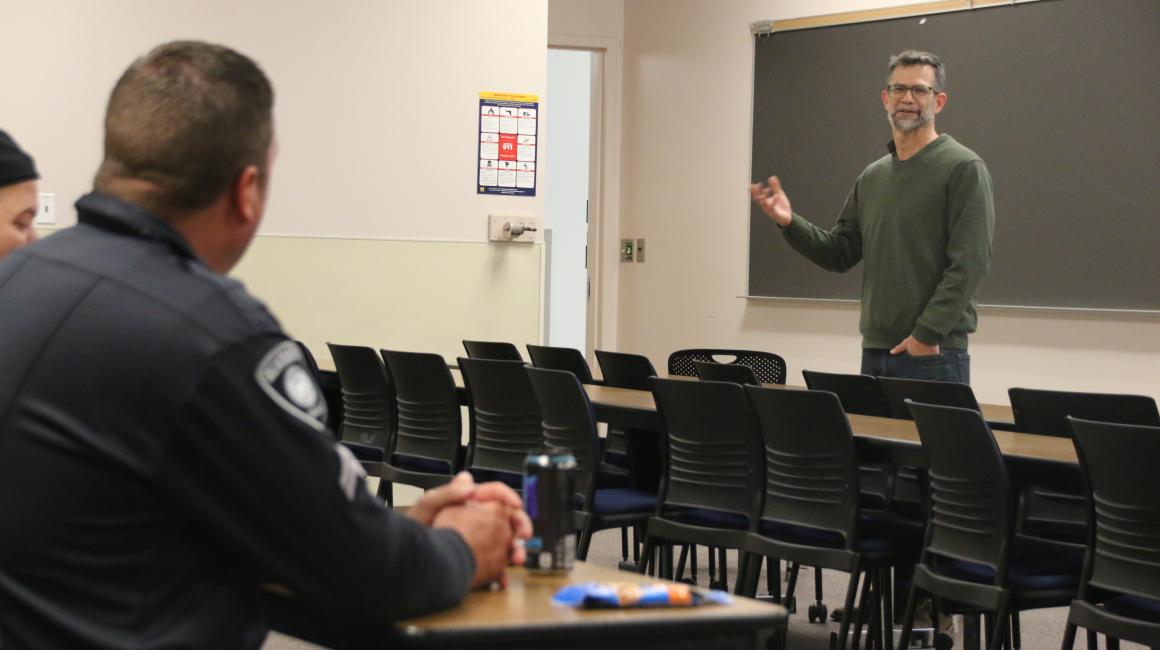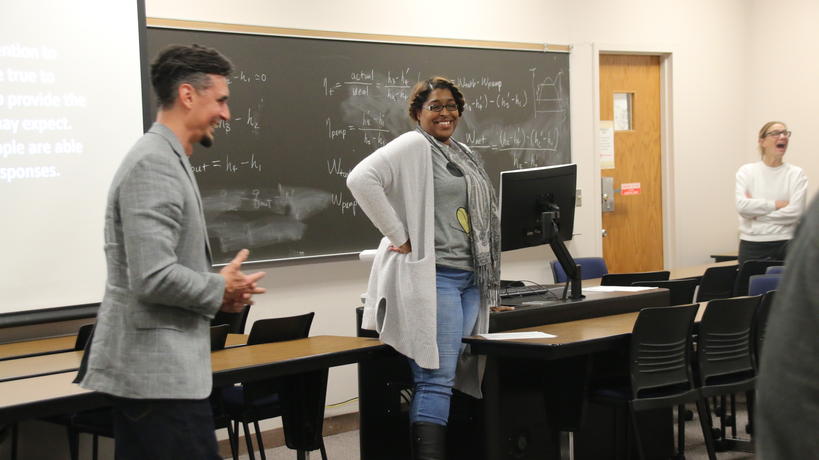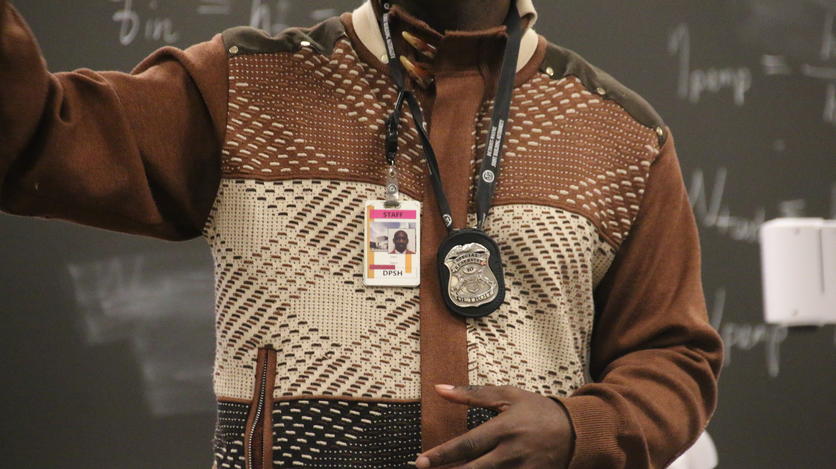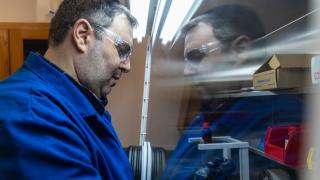
This article was originally published on December 19, 2019.
Dearborn Police Corporal Foyid Mockbil has Special Weapons and Tactics training. He’s been the first person into a building during a standoff with an armed suspect. Mockbil’s learned about working undercover with a special task force many citizens credit with reducing Dearborn’s crimes.
But he’s never — and he’s been an officer for 23 years — taken a training course like UM-Dearborn’s Alternatives to Violent Force.
“It raised awareness for officers that there is an opposing viewpoint out that that comes from a deeper place than a news article or someone’s one-time bad experience with an officer,” Mockbil said.
Speaking quite frankly — Mockbil said officers have a habit of that — he wasn’t thrilled to take the class at first.
“You never know if you’re going to get lectured by someone who doesn’t understand police work. And it seems that there is so much tension these days about police, politics, just about everything really, that productive conversations are hard to have.”
But Mockbil said it wasn’t like that at all.
“It was hearing from people who have worked in or with law enforcement. They’d share their experiences and how citizens might have viewed what they did when talking about different reasons there’s disconnect between police and the people we serve. Instead of talking at us about it, we talked it out. It was more like the beginning of a healing process.”
Alternatives to Violent Force, a Michigan Commission on Law Enforcement Standards (MCOLES)-certified program, addresses topics like how the public views police action and force, the voices behind behind the Black Lives Matter movement, ways to approach citizens with mental illness, and other areas that lead to healthy discussions that address the us vs. them narrative and why it exists in the media and in communities.
The program is part of the Justice Reform Project and Current Policing Curriculum Series (CPCS). The Justice Reform Project and the CPCS were developed under the leadership of Public Policy Professor Julie Roddy and the Hon. Donald Shelton, UM-Dearborn Criminology and Criminal Justice Program director and a 25-year veteran of the Washtenaw County trial courts.
“We have turned our police officers into warriors — this idea that they are soldiers in a battle to preserve order. But at the same time, they have to be guardians, treating civilians with respect and with safety. You have to be both, and that’s hard work,” said Shelton on why he wanted to create the program.
Sociology Associate Professor Paul Draus and UM-Dearborn 2018 Alumna Omitra Gates, who is pursuing law school, are also heavily involved in organizing each cohort.

At a Tuesday night class, Draus — teaching the group about empathetic thinking — pushed for participation from the officers to give examples where they used discretion while on the job and then talk about the result of that choice.
One officer shared how he was called to arrest a homeless man outside of a store. Seeing the man wasn’t a nuisance, but was underdressed for the cold temperatures, he bought the man warm clothing, got him a meal and drove him to a homeless shelter.
When Draus asked the officer why he empathized with the man, the officer said he was concerned for the man’s health because it was cold and he wouldn’t want any of his family or friends out in weather like this.
The Draus asked: “Are you glad you used discretion?”
After a pause, the officer replied yes. But explained that he’s since seen the man out on the streets and underdressed for the weather again. “Even if I helped him over and over again, he’d be in the same spot again. But at least I know for a little while he had warm clothes and food.”
This sparked a discussion among the officers on both sides of the fence on if giving breaks or going the extra mile benefits people in the long term. Draus then redirected the conversation back to understanding the meaning of empathy.
“Don’t get empathy confused with being emotional and not strategic. Sympathy is an emotional reaction. Empathy is a thought process to see the situation from someone else’s point of view. It’s more about trying to understand someone’s situation when coming to the most beneficial decision,” Draus said. “And I want to be clear that you can still empathize and still give someone a ticket or take someone to jail. It’s not about being soft. It’s about taking a moment — when you can — to do this thought exercise.”
In addition to UM-Dearborn members, several guest educators are involved with the program. For example, Harold J. Love, a retired Michigan State Police officer and licensed mental health therapist, spoke about crisis intervention, de-escalation and communication training specific to people with mental illness; Daryl Harris, a minister/community organizer who is an honorary member of the Detroit Police Department talked about the sanctity of life and the importance of justice and respect from all parties. And Vincent Dalfonzo, a retired 30-plus-year FBI agent, spoke about how law interprets force and how the public views police action.

Mockbil — at the end of the seven-week session that met for three hours each Tuesday night — said once the group of 20 officers finished AVF, the Dearborn Police Department would have 100-percent completion among the officers.
Mockbil says he appreciated the educators’ views and liked having open, honest discussions in the sessions. But he’d like to see the work go a step further by bringing in members of the community. Maybe it wouldn’t work in this particular program, but he feels there’s a bridge-building opportunity.
“We are all adults, but it can be uncomfortable having real conversations with people we have preconceived notions about or who we don’t understand. But to get to a place of understanding, conversations need to take place. I’ve gained a lot by learning how I can be seen by someone who doesn’t know me,” Mockbil said. “Maybe one way to continue the healing process is to bring in community members to learn about police pressures and then have us work together — when we have an understanding of each other — on ways we can do things better. If that happens, sign me up.”




